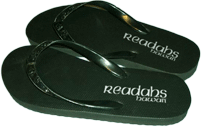The Kitchen
to grubby little me who, in want of a pepsi
always knew where to go.
too shy for social etiquette,
I sat on her porch
waiting to be seen.
soon her voice, “Oh, Hideko,
I neva see you. So hot today,
you want some pepsi?”
my nod followed her
into the kitchen where she poured
warm pepsi into a white porcelain coffee cup.
she could have used crystal,
it would have been safely held
between my hands, as I sipped and felt
warm pepsi flow down my parched throat.
there was no ice in our village, no electricity
or supermarkets. deprivation was bliss.
looking back, I hear the dialogue
between Fanny and her children:
“ma, what happened to the can of pepsi?”
“oh, that Kakugawa girl was here again
so I gave it to her.”
“oh man, she always here, drinking our pepsi.”
when I became a caregiver
for my mother with Alzheimer’s,
I sought Fanny’s kitchen once again.
she was gone then, and we were
all scattered, after Pele’s eruption
that covered our village away.
oh, how I needed a pepsi drink
living half in fear in the eerie world
called Alzheimer’s.
using that Kapoho girl savvy
I found solace in Jane’s home.
a Fanny in every aspect.
her door unlocked for my visits,
I went straight into her kitchen, declaring
“I need a mother,”
and sat myself down at her kitchen table.
“I dropped my mother at adult care
and I’m tired and hungry.”
that brought Jane to her feet. brewed decaf coffee,
lunch or breakfast, pending time of my visit,
dessert and more decaf while I kept one eye on the clock.
there is something so comforting to hear,
“eat, eat. You look too thin.”
once again I hear the conversation at the end of Jane’s day,
“don’t we have leftovers for dinner? “
“oh, Fran was here today.”
it was a place where I sat to gather,
a self that was being gnawed away, too,
by that Alzheimer’s thief, and Jane let me be.
Jane died last week and I grieve
for the kitchen she offered me, no matter what time of day,
and for being mother when I needed one most.
there’s a kitchen here in Sacramento
since my move nine years ago, a kitchen with another
name, but the same kitchen as long ago.
Mary’s kitchen is where I now sit,
when my need for a mother, or a friend
drives me to her home.
I sit and wait for freshly brewed coffee,
or hot green tea with healthy snacks,
vegan-made by Mary’s hands.
I honor all three women this quiet day,
for their kitchen without lock, and warm Pepsi
to soothe a parched life.
Frances Kakugawa was born in Kapoho on the Big Island of Hawaii, destroyed by Kilauea volcano. She did her reading in out-houses and by kerosene lamps and used her pen to get out of a place she mistakenly thought had nothing to offer dream seekers. She is an award winning international author of eleven books. Three of her books are on aging and caregiving. She also writes a column for caregivers in the Hawaii Herald.
Frances devotes her time giving keynote addresses, workshops and readings throughout the US on caregiving, teaching, poetry, and writing. She facilitates three writing support groups: Poetry support group for caregivers, Memoir Writing, and a generic poetry group in Sacramento where she now resides. Visit her website and order her books here.
Birthday
by Sue Cowing
A poem is a baby slowly forming
in the fluid inner world:
toes out of nowhere,
eyelashes out of heartbeat.
Like a dolphin, born tail-first
so it won’t drown
in a world of water.
Then someone, is it the mother?
nudges it to the surface, crooning
breathe now, breathe.
[gn_divider]
Kōnane
by Sue Cowing
At Kaʻena, fire and waterline up their stones
dull black lavaround white coral
for the island’s oldest kōnane gamemoves so slow
the stones are all we see.
Sue Cowing is a local author active in the Hawaiʻi literary community. Her latest work is a middle-grade novel You Will Call Me Drog. Birthday was originally published in Bamboo Ridge.




Recent Comments